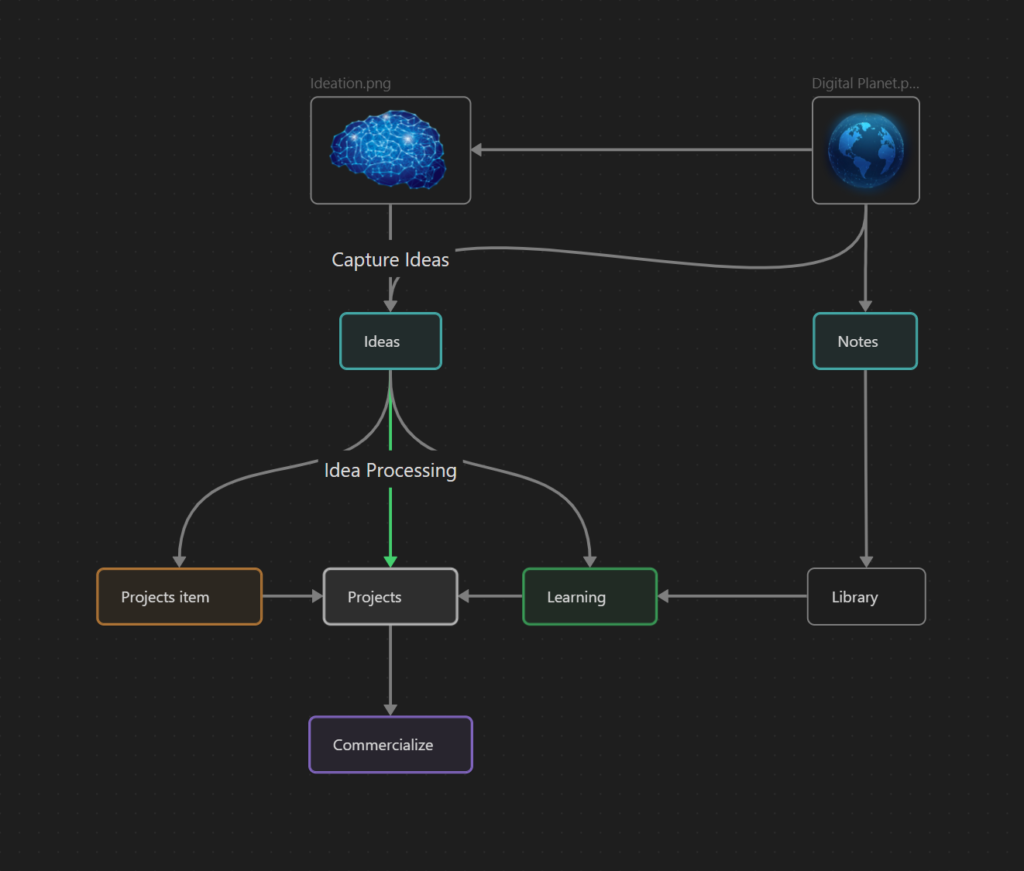Physical Address:
A34-Köshe, 17-Üi,
Astana, Qazaqstan
Physical Address:
A34-Köshe, 17-Üi,
Astana, Qazaqstan

If you’re looking for a powerful and flexible note-taking app that can help you organize your thoughts and knowledge, you might want to check out Obsidian.
Obsidian is a personal knowledge base and note-taking software application that operates on Markdown files.
It allows you to make internal links for notes and then to visualize the connections as a graph. It also has hundreds of plugins and themes that you can customize to fit your personal workflow. Obsidian is especially useful for managing projects, which are essentially anything that requires planning, execution, and evaluation. Projects can be related to your work, your learning, your life, or your hobbies. For example, learning a new skill, going to university or school, doing a job, creating something, or even exercising and tracking habits can be treated as projects.
In this blog post, I will share with you a new way of note-taking with Obsidian that is based on the concept of projects. The core of this note-taking method is to treat everything in your life as a project which includes your business, learning activities, your life goals, and anything else that matters to you. Each project has its own status and this can be visible on the dataview list, which is a plugin that allows you to query and display data from your notes.

The benefits of this method are:
How to use this method:
Create below folders in your vault called:
In the body of the note, write down the purpose, scope, objectives, milestones, resources, and any other relevant information about the project.
Create another note in the “Projects” folder called “Projects Index”. In this note, use the dataview plugin to query and display all the projects in your vault. For example:
# Projects Index
## Work Projects
```dataview
table status as Status, title as Project
from "Projects"
sort Rating desc
Then, create notes for each project that you have or want to start. Give it a descriptive name and add some metadata at the top, for example, a project note called “Develop Web Application for IoT”:
---
status: In progress
start: 2023-01-01
end: 2023-12-31 or open end
tags: #WebApp
link: [[Projects]]
Rating: 5
---
## List all Idea notes for this Project:
```dataview
table status as Status, title as Project
from "#WebApp"
sort Rating descYou can adjust the metadata for different types of projects, eg, life projects or habit tracking don’t need end date.
Review your projects index and your project notes regularly and update their status and information as needed. Celebrate your achievements and learn from your failures.
Idea capture and processing:
In our daily life and work, we always capture or create new ideas, eg from online video, reading a book, that might trigger our brain to create new ideas. We will write these ideas into our Obsidian, give the right tags, then internally link to right project which is relevant to that idea note. For example, i have a new idea note which is about adding a new feature to my web application, then this idea note will be tagged as #WebApp, and link to [[Develop Web Application for IoT]] on which we will see this idea note. and we can process this idea note while working on this web app project.
Knowledge notes processing:
Sometimes we will have some technical documents or SOP for our ongoing projects, then we can put this note under the “Library” folder, and give them corresponding tags. Then we can link these knowledge notes to our projects via tags.
Daily notes:
We can create daily notes with calendar plugin and we can do habit tracing, use task plugin to track our to-do lists under the daily notes.
By using this method, you can turn your note-taking into a project management system that can help you achieve your goals and dreams. Obsidian is a powerful tool that can support you in this process, but ultimately, it’s up to you to take action and make it happen.
I hope you found this blog post helpful and inspiring. If you have any questions or feedback, please leave a comment below or contact me on my website. Thank you for reading!